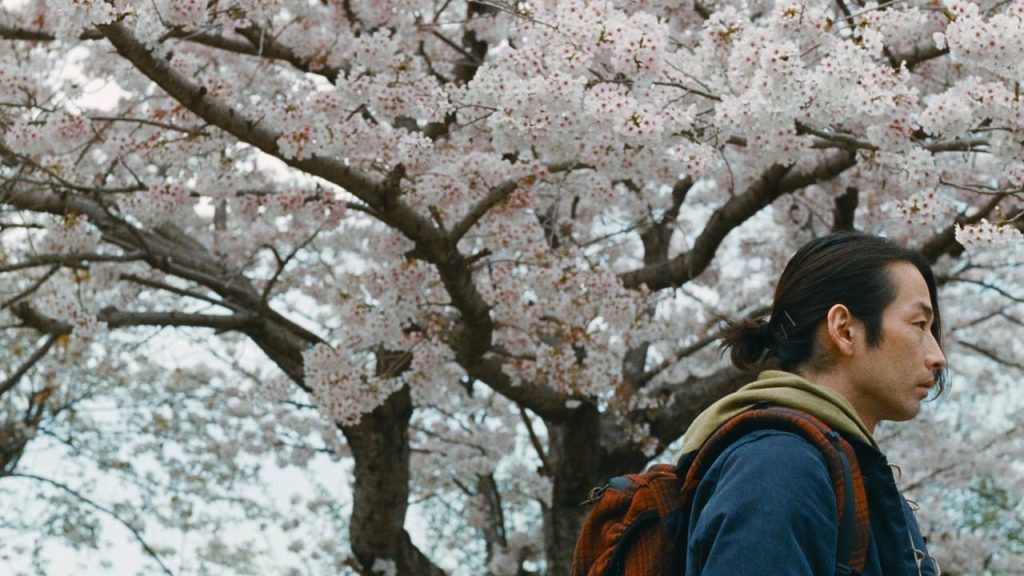A Heartfelt Exploration of Dementia and Family Reconciliation
“Great Absence” is a deeply personal drama by Kei Chika-ura that delves into the emotional complexities of dealing with a parent’s mental deterioration. The film, which stars the legendary Tatsuya Fuji, explores the strained relationship between a father and son against the backdrop of dementia. The nuanced portrayal of these characters elevates the film beyond melodrama, creating a poignant story of love, regret, and the fleeting nature of time.

Chika-ura’s direction is both subtle and refined, reflecting a deep personal connection to the subject matter. The film’s pacing can feel indulgent, but the deliberate unfolding of the story allows for a rich exploration of the characters’ inner lives. The framing device of an avant-garde production of Ionesco’s “Exit the King” adds a layer of thematic resonance, highlighting the parallels between the play’s themes of loss and the film’s narrative.
Tatsuya Fuji’s performance as Yohji is nothing short of stellar. His portrayal of a man grappling with his fading mental faculties and the emotional weight of his past is both heartbreaking and compelling. Mirai Moriyama and Yoko Maki also deliver strong performances, adding depth to the story of a family struggling to reconnect.
The screenplay of “Great Absence” is intricate, weaving together past and present to create a tapestry of memories and secrets. The film’s structure, which mirrors the fractured memories of someone with dementia, is disorienting yet effective in conveying the confusion and dislocation experienced by the characters.
Visually, “Great Absence” is a subdued yet evocative film. The cinematography captures the quiet moments of introspection and the stark reality of Yohji’s condition. The film’s deliberate pacing and visual style create an atmosphere that is both melancholic and contemplative.
The film’s score is understated, complementing the emotional tone without overwhelming it. The music enhances the film’s introspective quality, creating a poignant backdrop for the unfolding drama.
“Great Absence” explores themes of family, memory, and the passage of time. The film delves into the emotional toll of aging and dementia, the secrets that can divide families, and the longing for reconciliation. It is a deeply human story that resonates with anyone who has faced the decline of a loved one.
While “Great Absence” is not a historical film, its exploration of dementia and family dynamics is universally relatable. The film’s portrayal of the emotional and psychological impact of aging is both authentic and moving.
Strengths:
- Stellar performances, especially by Tatsuya Fuji
- Nuanced direction and storytelling
- Deep exploration of complex emotional themes
Weaknesses:
- Pacing can feel slow and indulgent
- The film’s structure may be disorienting for some viewers
If you appreciated films like “The Father” or “Still Alice,” “Great Absence” offers a similarly profound exploration of dementia and its impact on family relationships. It also shares thematic elements with films like “Tokyo Story,” focusing on the emotional complexity of parent-child relationships.
“Great Absence” is a must-watch for those who appreciate deeply emotional and introspective dramas. It is a film that lingers in the mind, prompting reflection on the nature of family, memory, and the passage of time. Stream it now on iwatchonline.cc for a heartfelt and thought-provoking experience.
FAQ about “Great Absence”
Is “Great Absence” based on true events?
“Great Absence” is not based on a specific true story, but it deals with universally relatable themes of dementia and family dynamics that many viewers may find resonant.
Who directed “Great Absence”?
The film was directed by Kei Chika-ura, whose nuanced storytelling and direction bring a personal touch to the film.
What themes does “Great Absence” explore?
“Great Absence” explores themes such as family reconciliation, the emotional toll of aging and dementia, and the secrets that can divide and eventually bring families together.
Is “Great Absence” available for streaming?
Yes, you can stream “Great Absence” on iwatchonline.cc. It is the best platform for watching this emotionally compelling drama.
What makes “Great Absence” different from other films about dementia?
“Great Absence” stands out for its nuanced portrayal of dementia and its impact on family relationships. The film’s structure, which mirrors the fragmented nature of memory, and its deeply personal storytelling set it apart from other films in the genre.
For further reading, you can check out the Wikipedia page on dementia and Human Rights Watch reports on aging.



